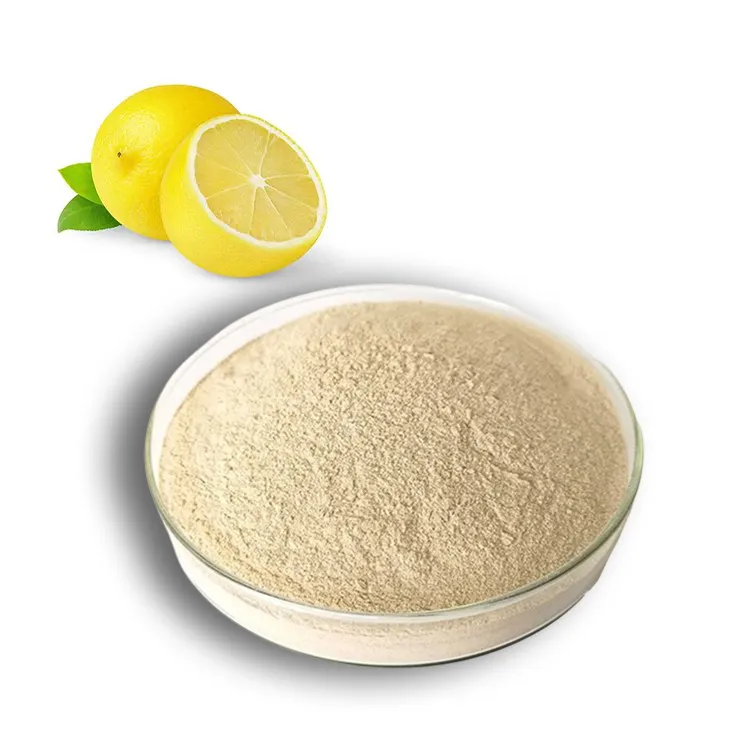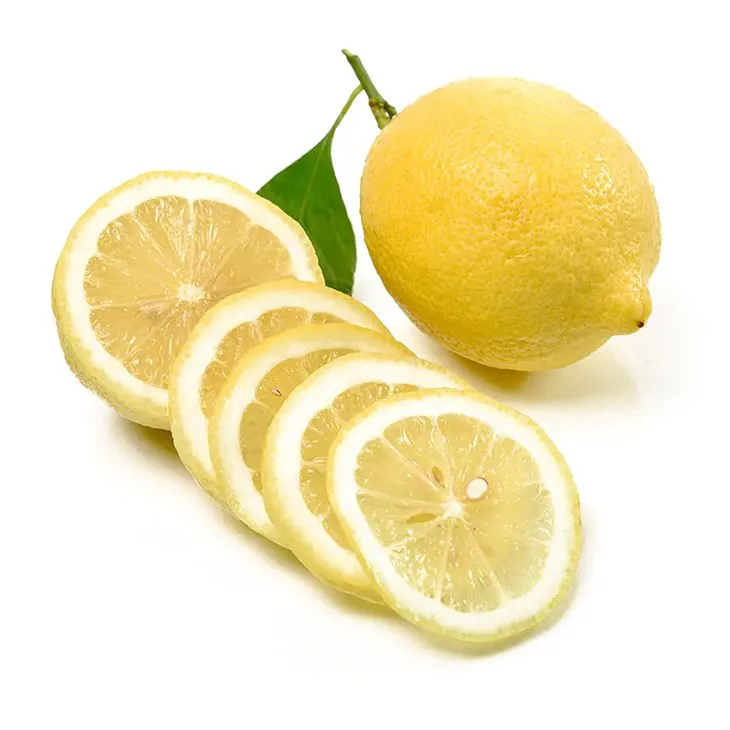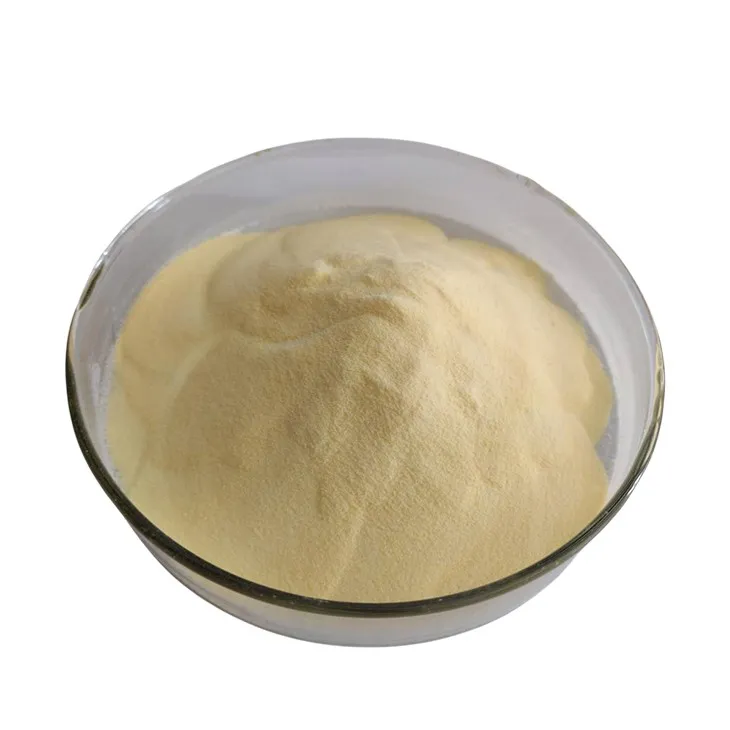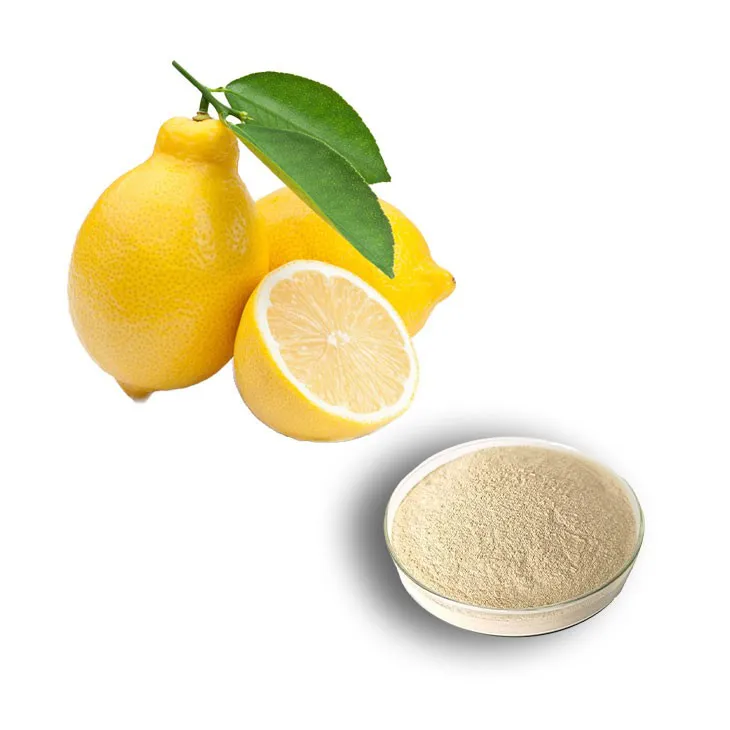- 0086-571-85302990
- sales@greenskybio.com
5 Great Reasons for Using Lemon Extract in the Food Industry.
2024-12-12

1. Tangy and Zesty Taste Enhancement
The tangy and zesty taste of Lemon Extract is one of the primary reasons it is highly sought after in the food industry. This unique flavor profile has the power to transform ordinary dishes into extraordinary culinary experiences.
In the case of beverages, Lemon Extract can add a refreshing and invigorating note. For example, in lemonade, it is the key ingredient that gives the drink its characteristic bright and tangy flavor. The acidity of the Lemon Extract balances the sweetness, creating a harmonious taste that is both thirst - quenching and delicious. Even in more complex drinks like cocktails, a dash of lemon extract can cut through the richness of other ingredients such as spirits and syrups, adding a layer of freshness and complexity.
When it comes to sauces and dressings, lemon extract can work wonders. In a vinaigrette, it can enhance the overall flavor by providing a sharpness that complements the oil and vinegar. This tanginess can also help to cut through the richness of creamy sauces, making them more palatable. For instance, in a hollandaise sauce, a small amount of lemon extract can prevent it from being overly rich and add a subtle yet distinct flavor.
In baked goods, lemon extract imparts a wonderful citrusy aroma and flavor. It can be used in cakes, muffins, and cookies. In a lemon cake, the extract gives the cake a light and airy quality, as well as a delicious tangy taste that pairs well with the sweetness of the cake. The zesty flavor can also enhance the overall sensory experience of eating the baked good, making it more appealing to consumers.

2. Antioxidant Properties for Health Benefits
Lemon extract is rich in antioxidants, which play a crucial role in promoting health. Antioxidants are substances that can prevent or slow damage to cells caused by free radicals. Free radicals are unstable molecules that are produced in the body during normal metabolic processes, as well as due to environmental factors such as pollution and radiation.
One of the main antioxidants found in lemon extract is vitamin C. Vitamin C is well - known for its immune - boosting properties. It helps in the production of white blood cells, which are essential for fighting off infections. In the food industry, products containing lemon extract can be marketed as a source of this important nutrient. For example, in fruit juices or fortified snacks, the presence of lemon extract can contribute to the overall vitamin C content.
Antioxidants in lemon extract also have anti - inflammatory effects. Inflammation is a natural response of the body to injury or infection, but chronic inflammation can lead to various health problems such as heart disease, diabetes, and arthritis. By including lemon extract in food products, it is possible to offer consumers a natural way to potentially reduce inflammation in their bodies. For instance, in functional foods or dietary supplements, lemon extract can be a valuable ingredient.
Additionally, antioxidants in lemon extract may have a role in preventing certain types of cancer. While more research is needed in this area, some studies have suggested that the compounds in lemon extract may be able to inhibit the growth of cancer cells. This potential health benefit can be an attractive selling point for food products that contain lemon extract, especially in the health - conscious market segment.

3. Reduction of Artificial Flavors and Additives
In modern food production, there is a growing trend towards clean label products, which are those that use fewer artificial flavors and additives. Lemon extract offers a natural alternative to artificial lemon flavors.
Artificial flavors are often created through chemical synthesis in a laboratory. They may mimic the taste of natural ingredients to some extent, but they lack the complexity and authenticity of natural flavors. In contrast, lemon extract is derived directly from lemons, containing all the natural compounds that give lemons their unique flavor. By using lemon extract, food manufacturers can create products with a more natural and pure taste.
Moreover, consumers are increasingly aware of the potential health risks associated with artificial additives. Some artificial additives have been linked to allergic reactions, hyperactivity in children, and other health issues. By substituting artificial lemon flavors with lemon extract, food companies can appeal to consumers who are concerned about the safety and quality of the food they consume.
Another advantage of using lemon extract over artificial flavors is in the area of product labeling. Products that contain natural ingredients like lemon extract can be labeled as such, which can be a significant selling point. This can attract consumers who prefer to choose products with simple, recognizable ingredients over those with a long list of artificial additives.

4. Versatility in a Wide Range of Food Products
One of the remarkable aspects of lemon extract is its versatility. It can be used in a vast array of food products, from sweet to savory, and from liquid to solid.
In the realm of sweet treats, as mentioned before, it is a great addition to baked goods like cakes, cupcakes, and pastries. It can also be used in confectionery items such as candies and chocolates. In chocolates, for example, a touch of lemon extract can add a unique and refreshing flavor twist, making the chocolate more interesting to the palate.
When it comes to savory dishes, lemon extract can enhance the flavor of many different types of cuisine. In Mediterranean cuisine, it is often used in fish and seafood dishes. The acidity of the lemon extract helps to cut through the fishy smell and adds a bright flavor to the dish. In Italian cuisine, it can be used in pasta dishes, either in the sauce or as a finishing touch. In a simple pasta with olive oil and garlic, a few drops of lemon extract can transform the dish, making it more complex and flavorful.
In beverages, the possibilities are endless. Besides lemonade and cocktails, lemon extract can be used in hot drinks such as tea. A lemon - flavored tea can be both soothing and refreshing, especially when combined with other herbs or spices. In coffee, a small amount of lemon extract can add an unexpected but pleasant flavor note, creating a unique coffee - based drink.
Even in dairy products, lemon extract can find its place. In yogurt, it can be added to create a tangy and refreshing flavor. In cheese - making, it can be used to add a unique flavor profile to certain types of cheeses.

5. Aesthetic and Sensory Appeal
Lemon extract not only affects the taste of food products but also has an impact on their aesthetic and sensory appeal.
The citrusy aroma of lemon extract can be very alluring. When a consumer opens a package of a food product containing lemon extract, the pleasant smell immediately greets them. This can create a positive first impression and increase the likelihood of the product being tried. For example, in a box of lemon - flavored cookies, the aroma of lemon extract can make the cookies seem more inviting.
In terms of color, while lemon extract itself may not contribute a significant color change in most cases, when combined with other ingredients, it can be associated with a fresh and bright aesthetic. For instance, in a lemon - flavored beverage, the overall presentation of a clear, yellowish - tinted drink can give an impression of freshness and purity.
The taste and aroma of lemon extract also work together to create a multisensory experience. When a consumer takes a bite or a sip of a product with lemon extract, the tangy taste on the tongue is accompanied by the refreshing aroma in the nose. This combination enhances the overall enjoyment of the food or drink, making it more memorable and likely to be consumed again.
FAQ:
What are the main taste contributions of lemon extract in the food industry?
Lemon extract provides a tangy and zesty taste. This unique flavor can enhance the overall taste profile of various foods, making them more appealing to consumers. For example, in desserts, it can add a refreshing and bright note, and in savory dishes, it can provide a contrast to rich or fatty flavors.
How do the antioxidant properties of lemon extract benefit food in the food industry?
The antioxidant properties of lemon extract are beneficial as they can help preserve the quality of food. Antioxidants prevent the oxidation of fats and other components in food, which can lead to rancidity or spoilage. By using lemon extract, food manufacturers can potentially extend the shelf - life of their products while also providing the added health benefit to consumers.
Can you give some examples of how lemon extract reduces the use of artificial flavors and additives?
Sure. In many cases, lemon extract can be used as a natural substitute for artificial lemon - flavored additives. For instance, in lemon - flavored beverages, instead of using synthetic lemon flavorings, lemon extract can be used to achieve a more natural and authentic taste. In baked goods like lemon cakes or muffins, lemon extract can replace artificial flavor enhancers, providing a pure and real lemon flavor without the need for artificial additives.
What types of food products can lemon extract be used in?
Lemon extract is extremely versatile and can be used in a wide range of food products. In the beverage category, it is used in lemonades, iced teas, and cocktails. In baked goods, it is a common ingredient in lemon pies, cakes, and cookies. It can also be used in dairy products such as lemon - flavored yogurts. Additionally, it can be added to salad dressings, marinades for meats, and even in some confectionery items.
How does lemon extract compare to fresh lemons in terms of usage in the food industry?
Lemon extract has some advantages over fresh lemons in food industry usage. While fresh lemons can add flavor, they also add moisture which may not be desirable in all products, like in some dry - mix products or confectionery. Lemon extract, on the other hand, provides a concentrated flavor without the added water content. Also, lemon extract has a more consistent flavor profile compared to fresh lemons which can vary in taste depending on factors such as season and origin.
Related literature
- The Role of Natural Extracts in the Modern Food Industry"
- "Lemon Extract: A Versatile Ingredient in Food Flavoring"
- "Antioxidant - Rich Ingredients in the Food Industry: Spotlight on Lemon Extract"
- ▶ Hesperidin
- ▶ citrus bioflavonoids
- ▶ plant extract
- ▶ lycopene
- ▶ Diosmin
- ▶ Grape seed extract
- ▶ Sea buckthorn Juice Powder
- ▶ Beetroot powder
- ▶ Hops Extract
- ▶ Artichoke Extract
- ▶ Reishi mushroom extract
- ▶ Astaxanthin
- ▶ Green Tea Extract
- ▶ Curcumin Extract
- ▶ Horse Chestnut Extract
- ▶ Other Problems
- ▶ Boswellia Serrata Extract
- ▶ Resveratrol Extract
- ▶ Marigold Extract
- ▶ Grape Leaf Extract
- ▶ blog3
- ▶ blog4
- ▶ blog5
-
Pure 85% Tomentil Extract.
2024-12-12
-
Cocoa Extract
2024-12-12
-
Epimedium extract powder
2024-12-12
-
Mango flavored powder
2024-12-12
-
Milk Thistle Extract
2024-12-12
-
Hedyotis Diffusa Extract
2024-12-12
-
Citrus Aurantium Extract
2024-12-12
-
Sugarcane Extract
2024-12-12
-
Kidney Bean Extract
2024-12-12
-
Phyllanthus Emblica Extract
2024-12-12
-
Honeysuckle Pollen
2024-12-12





















